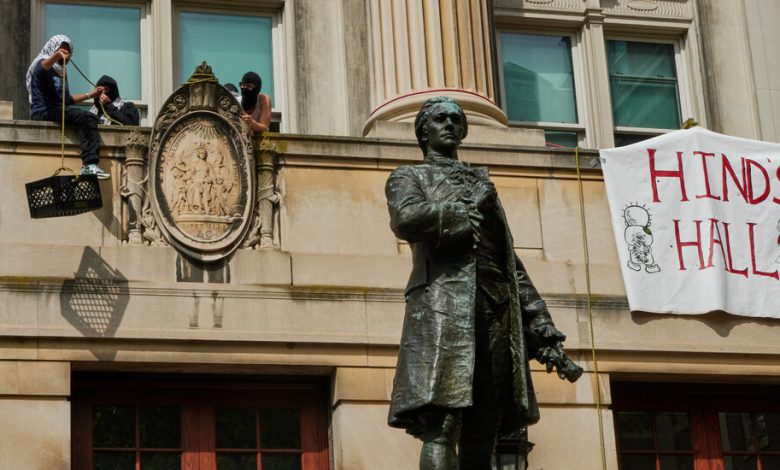Why Bragg Dropped Charges Against Most Columbia Student Protesters

Alvin Bragg, the Manhattan district attorney, last week dropped most of the 46 cases against pro-Palestinian demonstrators charged in the April 30 siege of Hamilton Hall at Columbia University because prosecutors had little proof that the cases would stand up at trial.
There was limited video footage of what took place inside the campus building, Doug Cohen, a spokesman for the district attorney, said in a statement. The protesters wore masks and covered security cameras, preventing prosecutors from identifying those who had barricaded the doors and smashed chairs, desks and windows during the 17-hour occupation.
The district attorney announced the decision to drop 31 of the 46 cases during a court hearing on Thursday. Apart from trespassing, a misdemeanor, proving any other criminal charges would be “extremely difficult,” Mr. Cohen said.
For similar reasons, prosecutors also dismissed charges against nine of the 22 students and staff members at City College who were arrested inside a campus building and charged with burglary during a protest that took place on the same night as the arrests at Hamilton Hall.
Six other people who were arrested outside the building still face criminal charges: Five were charged with second-degree assault, a felony, and another was charged with criminal possession of a weapon in the fourth degree, a misdemeanor.
The protests on April 30 grew out of a weekslong encampment on Columbia’s South Lawn that ignited similar demonstrations at college campuses across the country and resulted in hundreds of arrests. As the academic year drew to a close, protesters called on Columbia to divest from Israel, among other demands, sometimes clashing with counterprotesters or with the police.